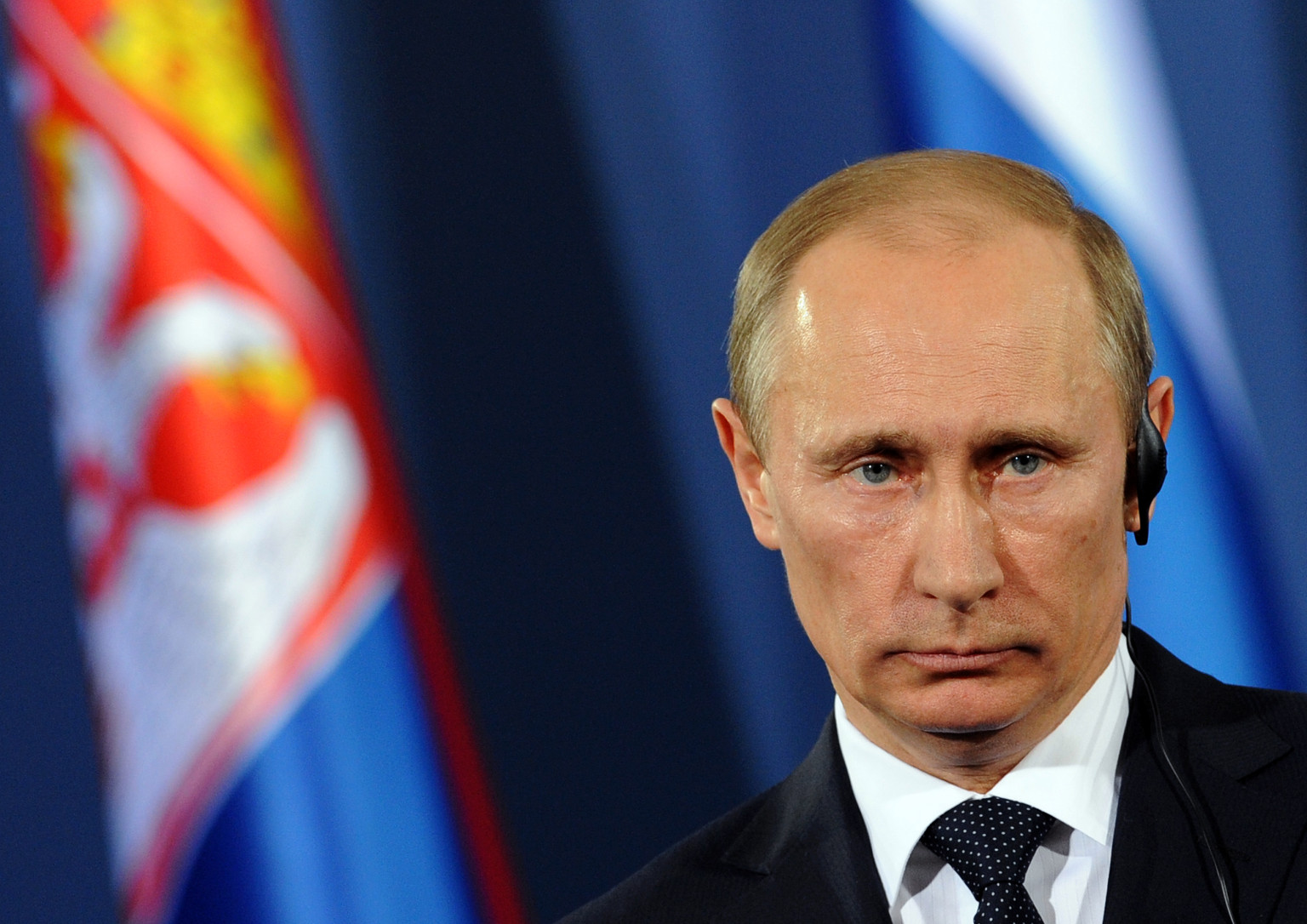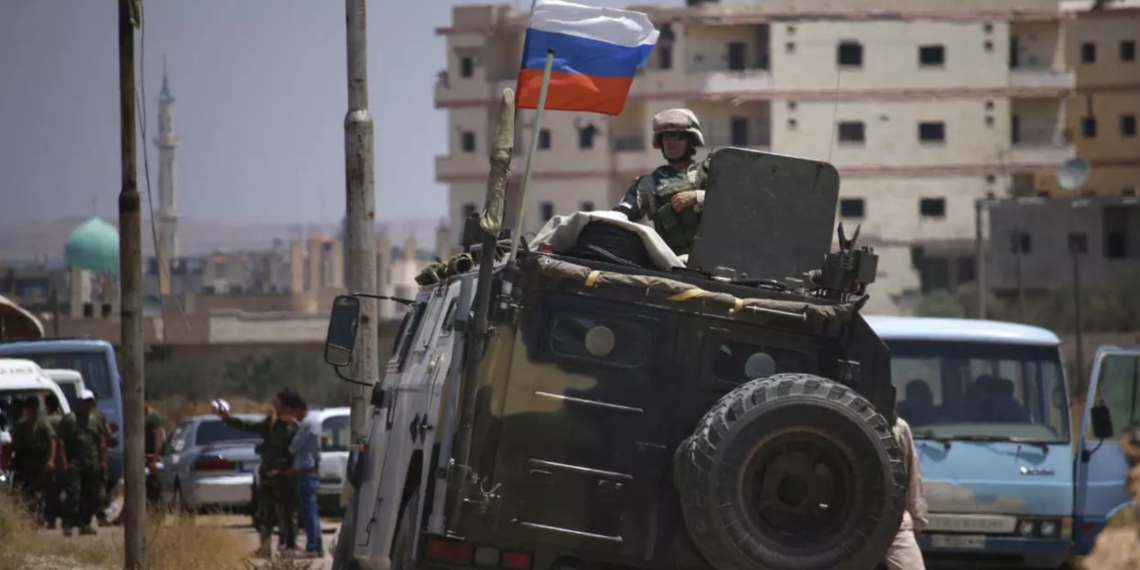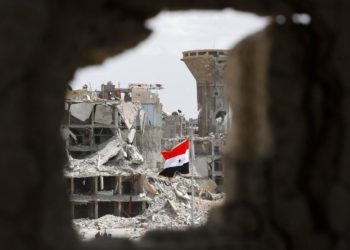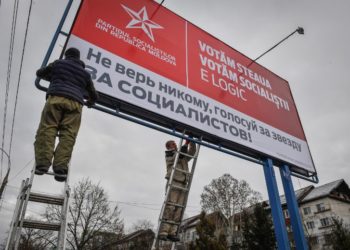The ceasefire agreement signed last week between Ankara and Moscow was intended to de-escalate tensions in the northwestern Syrian province of Idlib. After airstrikes targeted a Turkish army resupply convoy in recent days, the exact opposite effect has been achieved.
Reading between the lines, the focus of the deal was a 12-kilometer-wide security corridor around Idlib’s M4 motorway, providing a strategically-important route between the government-held cities of Aleppo and the Mediterranean port of Latakia.
Suggestions that Russian forces orchestrated the attack are for now impossible to prove, though certainly also within the realm of possibility. Ever melodramatic, Al Jazeera reported that the offensive “brought the two countries close to direct confrontation.” The bastion of British journalistic integrity, the Express, even ran a headline predicting tensions would lead to “World War 3.”
Moscow Deal
Though the thought might well keep some NATO leaders up at night, any casual fan of Cold War history could point out that the deterrent effect of a possible triggering of Article 5, which dictates that an attack on one NATO member is an attack on all of its members, has shored up far more sinister situations.
What is less clear is where the parties go from here. In a speech in Ankara delivered the day after the offensive, Turkey’s President Recep Tayyip Erdogan came out swinging in typically gung-ho fashion.
“In the face of the smallest attack [on our posts], we will not only retaliate, but we will respond much more heavily,” he said.
With this rhetoric, Erdogan has backed himself into a corner – so much so that if evidence were even to come to light of Russian coordination of the offensive, he would likely have no choice but to look the other way. Under the terms of the Moscow deal, Turkey and Russia also agreed to hold joint patrols along the M4 highway, commencing on March 15. Strange bedfellows indeed.
Interestingly, Syrian President Bashar al-Assad’s adviser, Buthaina Sha’aban, recently cited the agreement in an interview on Lebanon’s Al-Mayadeen TV. According to Sha’aban, the Moscow deal paves the way for the Syrian Arab Army to retake key areas in Idlib Governorate. It is yet unclear how this would unfold.
Turkey’s Intentions in Idlib
Turkey’s intentions in the region, however, are clear. With nearly one million civilians displaced in the province since December, most have retreated to the shrinking buffer zone that lies against Turkey’s southern borders. The country already hosts some 3.7 million Syrian refugees, and Erdogan’s comments on its ability to handle any additional influx have been similarly blunt.
Russian motives, at least in Syria, are a bit more muddied. Deutsche Welle argued that the Assad regime secures Russian soft power in the Middle East, while Foreign Policy suggested that Russian President Vladimir Putin views the proxy conflict itself acts as a stage to showcase the country’s waning military power.

What these and most analyses miss is that Idlib province is actually the geopolitical center point of Russian involvement in the civil war. For a country beset by a lack of warm-water ports and associated Atlantic naval capability, its only naval base outside of the former USSR is based at Tartus – located in, of all places, Idlib province.
Soviet-era tactics of maintaining a permanent rotation of nuclear and conventional vessels in European waters are largely enabled by this facility, and even in today’s world, these have consequences for Russia that stretch far beyond the Middle East or the Black Sea.
The Kremlin places so much value on this asset that, even amid the conflict, deputy prime minister Yury Borisov pledged $500 million of continued investment to the base. Guaranteeing connection to a friendly Aleppo would double down on this commitment, which can only be conveniently achieved by ensuring the M4 highway stays open to Russian vehicles.
Russia to invest $500m in Syrian port of Tartus, Moscow’s Mediterranean beachhead and the Russian navy’s sole port outside the ex-USSR, as the Kremlin seeks to build on its role as the wartorn country’s most powerful foreign player https://t.co/9xpkGxAY6h via @financialtimes
— Henry Foy (@HenryJFoy) December 17, 2019
As long as the current ceasefire holds, this nexus between the capital and the naval base is somewhat secure. However, Salafist factions like Hay’at Tahrir Al-Sham and the allied Turkestan Islamic Party maintain a strong presence in the area. Though both groups are at pains to distance themselves from al-Qaeda and ISIS, the U.N.-designated terror groups receive considerable international support. They have so far refused to remove forces from areas directly south of the M4.
Putin would see Idlib, the last rebel foothold in the country, quashed, but not out of affection for Assad, secularism in the region, or even for Russian soft power. As tensions continue to ratchet up between Russia, Turkey, and (by extension) NATO, it would be remiss to expect Putin to back down any time soon.
Disclaimer: The views and opinions expressed here are those of the author and do not necessarily reflect the editorial position of The Globe Post.





















